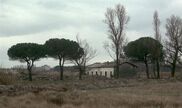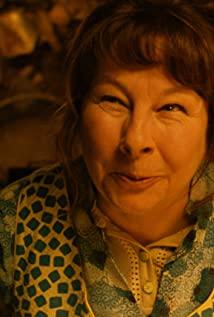We enjoy the achievements of science and technology, but suffer from the indifference of the world. We celebrate the fidelity of love, but guard against the betrayal of our partners. We pursue happiness in life, but we compete to shed blood in the workplace. We advocate independent thinking, but get lost in cultural brainwashing. We shouted long live freedom, but fell into the swamp of material desires.
How to do? We are so capricious and inconsistent. How hypocritical we are, speaking uplifting words and doing acts that cannibalize people's hearts. Existence precedes essence, but this era is turning the tide, and the world of assimilation makes essence appear prematurely. Is it right or wrong? This is the business of great philosophers, but each of us can be our own philosopher and shout: Long live Sartre!
Mona, with no clear background, is a sloppy, stinking homeless woman. Her life consists of hitchhiking, sleeping, sleeping in tents, taking drugs, having sex with other homeless people, doing odd jobs, selling gadgets, and more. Cool and hippie, right? But the film tells us at the beginning that she is dead. Hunger and cold took her life. She died in a filthy ditch that stinks as much as she does, and as police interview the many people who have come into contact with her, Mona's life is slowly revealed.
She has hitchhiked countless times, so she will always make up lies to well-meaning strangers and make up her own stories, otherwise it would be too boring to keep repeating the same topic. She's not cute, she speaks piercingly, and always turns on the radio in a stranger's car to stop chatting.
She once worked odd jobs in a garage, flirting with a mechanic, and finally vented her desires in the tent with the owner of the garage.
She used to live in the house of an elderly old woman secretly for drug use and a homeless addict. They kiss, have sex, do drugs, and bask in the sun. The old woman's maids found them but didn't chase them away. As a result, the maid's boyfriend and accomplices stole the granny's belongings at night and knocked out the addict. Mona left the next day because she was out of drugs. She's just having fun, not feeling emotional.
She once lived in the home of a herding couple. The husband is a Master of Philosophy, he chooses the moderation between freedom and shackles, starting a family, but staying away from the city and embracing nature. He understands Mona's choice, but does not support it. He believes that wandering is a kind of depravity, destruction, loneliness and death. He gave Mona a field to grow potatoes, but Mona never worked, spending all day in the RV smoking and enjoying herself. Unable to bear it, her husband told Mona that she was not rejecting the tradition, but was withdrawing from society. Mona said that if she had read books, she would never stay in the village to farm and herd sheep. At this point, the two parted ways.
She once got into the car of a female professor who studied plane trees. The female professor thought her dirty and smelly, but admired her courage. Gradually, the female professor no longer cared about Mona's dirtyness and smell. The female professor invited Mona to dinner, let Mona sleep in her car, told Mona about the study of the plane tree, and introduced Mona to her husband. student. This male student is the nephew of the old woman who was stolen from the house. He is eager to inherit the old woman's house, so as to make her happy. The female professor put Mona out of the car before going home, gave Mona some money, and kissed Mona's forehead farewell like a mother would to her daughter. Mona packed her bag and walked into the woods by the roadside. In the woods, Mona was raped by a strange man.
She was once taken in by workers who were pruning the vines. They work together and eat together, which is a rare warm moment. But when she tried to join the workers' organization, she was turned down because she was a woman. The workers who took her in did not dare to speak for her, so she left angrily.
She once took the car of the previous maid and returned to the old woman's house. She had a drink with the usually gloomy and seldom-talking old woman, and the maid sent Mona away jealously.
She once had a blast in a train station with a group of homeless people she had just met. He was driven out of his residence by a fire caused by a previous addict while sleeping in a dilapidated house.
She once spent shivering cold nights in the vegetable shed.
She was once teased by holiday villagers when she was looking for bread to satisfy her hunger.
She once went through a stinking ditch and fell down.
Wandering, a romantic idealistic vocabulary, is also a helpless realist vocabulary. Homeless or homeless, every homeless person is different.
View more about Vagabond reviews










